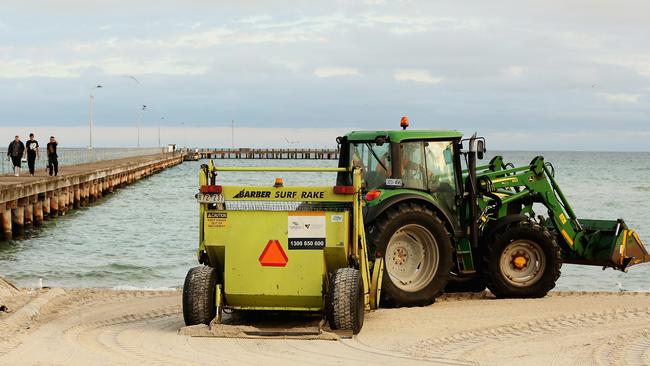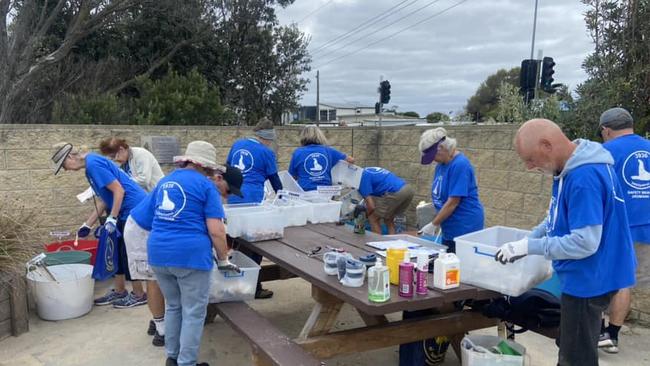Machines used to pick up litter on Mornington Peninsula beaches are being ditched for hand cleaning
An “environmental warrior” has convinced Mornington Peninsula council to stop using mechanical rakes to clean the beaches.

South East
Don't miss out on the headlines from South East . Followed categories will be added to My News.
Mornington Peninsula beaches will be cleaned entirely by hand in a world-first move to reduce litter and allow the coast to “breathe”.
The local council has agreed to stop using mechanical rakes on Port Phillip Bay beaches for at least 12 months after a hand cleaning trial at three beaches.
A team of five full-time workers would pick up rubbish by hand on all beaches currently raked, which would cost about $733,000.
Currently it costs the council about $600,000 for formal beach cleaning including fortnightly mechanical raking of 34.8km of the shore while 5.8km is already cleaned by hand.
The costs were recovered via a waste service charge.
However, the state government has threatened to crack down on councils using the waste levy to charge for services not directly related to kerbside collections.
Mornington Peninsula chief executive officer John Baker said the beach cleans would continue, regardless of how they were funded.

Volunteers from six Beach Patrol groups also hold monthly clean-ups and the council flagged the possibility of relying more heavily on volunteers should it lose the right to recover beach cleaning costs via its waste service charge,
Initial community consultation revealed 79 per cent of people supported hand cleaning.
The year long trial was approved by eight votes to nine with all but the deputy mayor Antonella Celi voting in favour.
The decision to stop raking came after a ten year project by “environmental warrior” Josie Jones which identified how much litter was on beaches and where it came from.
Her data challenged the idea that some rubbish was being washed up onto the sand from local creeks, stormwater and the bay itself.
Data collected by Ms Jones at Safety Beach, Mount Martha South Beach and Rye suggested that mechanical raking was an inadequate beach cleaning process because it “breaks, buries and redistributes the plastic just for it to be dug up again by the rake at a later point in time”.
Ms Jones found there was a spike in the amount of litter after mechanical raking, particularly macro plastics (2mm to 20cm in size) and that some rubbish was missed multiple times by the machinery.
“It’s undeniable that the rake isn’t working,” she said.
After “standing alone” for years, Ms Jones was ecstatic that her theory about beach rubbish was now being taken seriously.
“We have an opportunity to lead the rest of Australia and the world,” she said.
The initiative would give peninsula beaches a chance to “breathe and thrive”.
Ms Jones said mechanical rakes were “huge, heavy” pieces of machinery that upset the delicate marine ecosystem.
They also removed seaweed which was critical for marine life to thrive.


